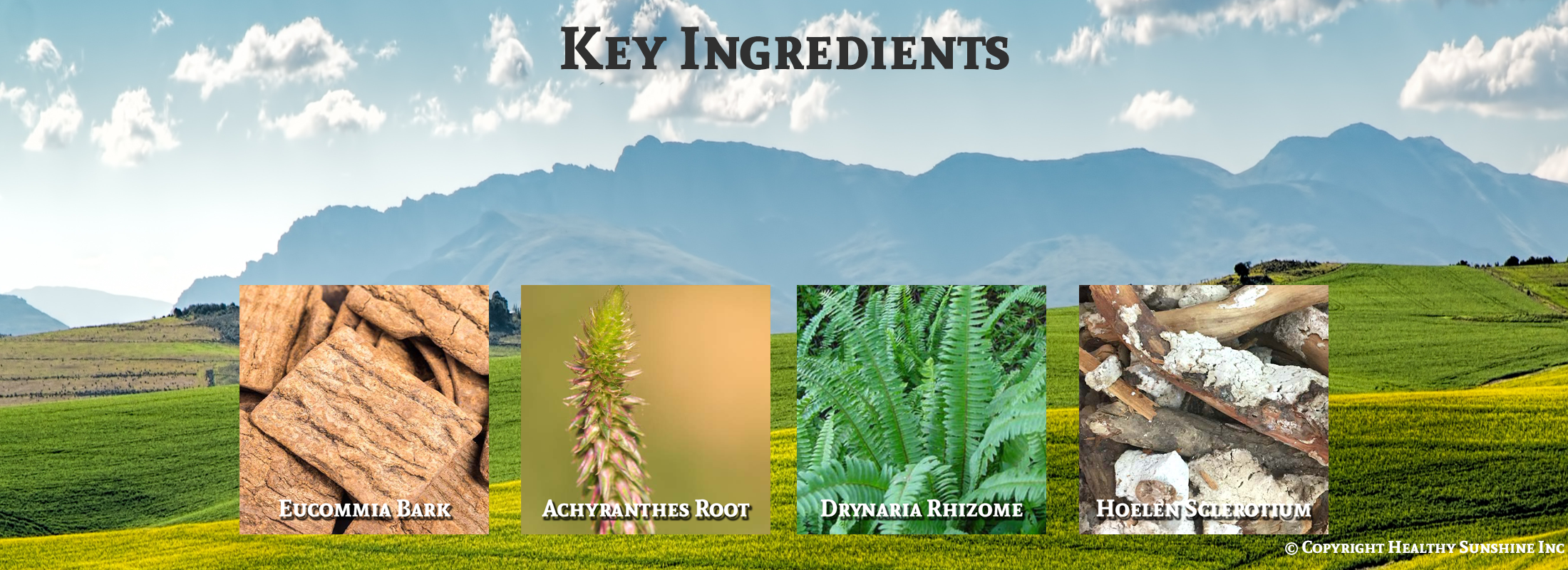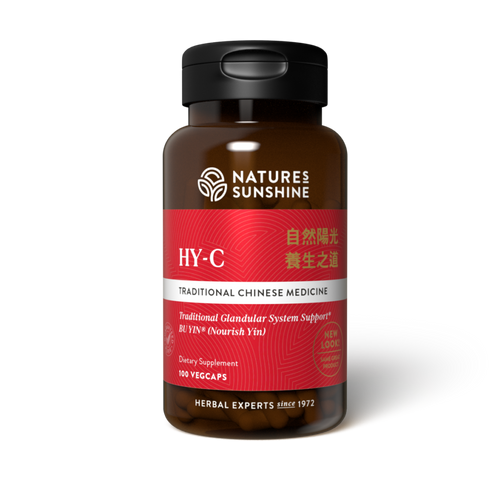Benefits:
- Strengthens the urinary system.
- Supports the structural system, specifically the bones.
- May help the body restore energy.
How It Works:
Its Chinese name jian gu can be translated to mean "strengthen the bones." It is designed to strengthen the water element. In Traditional Chinese Medicine, this formula is used to nourish the kidneys and nutritionally support the urinary and structural systems, eliminating water and providing extra joint support.
Chinese herbalists believe eucommia nourishes the kidney yang and the ligaments and bones. Eucommia has been used for centuries in the Far East for weakness. No single Western herb has been found to substitute for these qualities. Chinese herbalists also believe achyranthes relieves the body of excess fluids and strengthens it. They hold that achyranthes strengthens the liver, kidneys, bones and tendons. It has been used for convalescence, comfort and certain gynecological needs.
Ingredients:
Eucommia bark, cistanche stem, achyranthes root, dipsacus root, drynaria rhizome, hoelen sclerotium, morinda root, rehmannia root tuber, astragalus root, cornus fruit without seeds, dioscorea rhizome, epimedium
Recommended Use:
Take 3 capsules with a meal three times daily.
NOTE: Pregnant or lactating women should consult their health care provider prior to taking this supplement.
High in the mountain regions of China you find eucommia trees, part of the rubber tree family. Its Chinese name Du zhong came from a Taoist monk who was allegedly immortal. This suggests that the herb helps convey longevity, health and vitality.
Achyranthes grows in China, Japan, India and Nepal. Historical use includes the encouragement of urinary flow. In Nepal, they also use the juice from this root for oral applications.
Drynaria has been used in Traditional Chinese Medicine for more than a thousand years to build bone strength.
In Traditional Asian medicine, hoelen (Poria cocos) has been used for centuries to increase urinary flow.
















